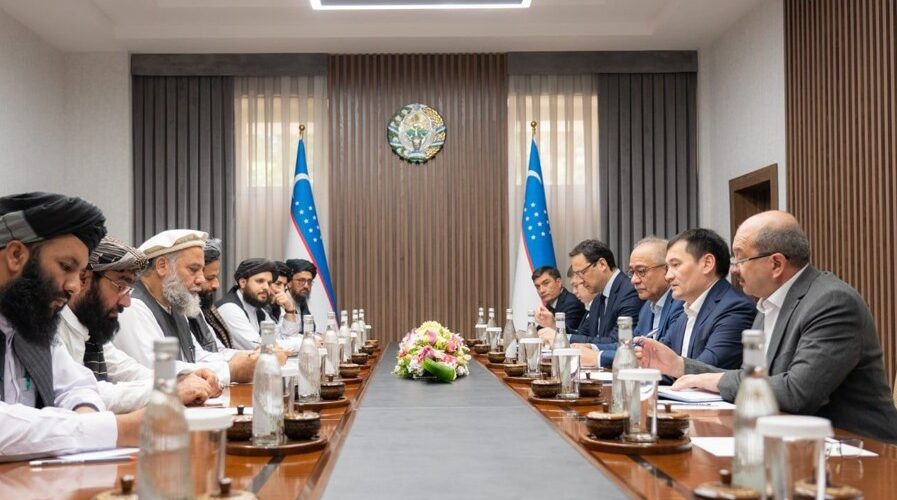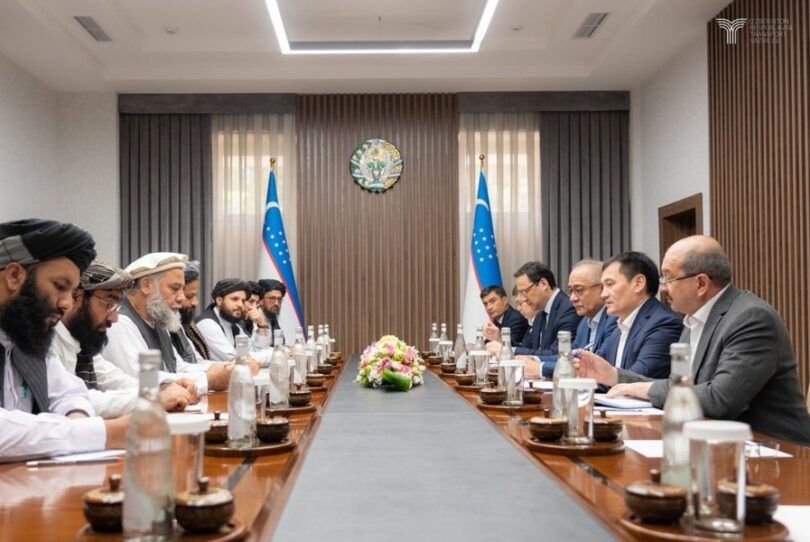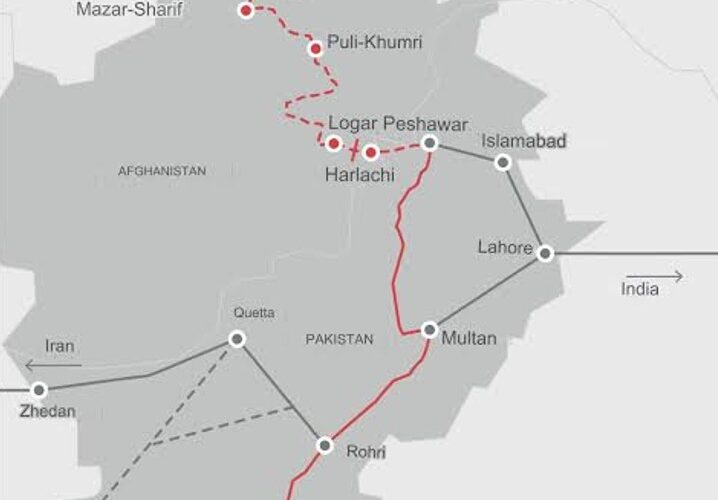On 17 July 2025, Trilateral framework agreement on the development of a feasibility study for the Uzbekistan-Afghanistan-Pakistan Trans-Afghan railway project was signed in Kabul. The feasibility study is expected to evaluate engineering challenges, projected costs, trade flow potential, and security conditions along the proposed route of the project. The study will determine the project potential and if viable, the three governments can expected to proceed with securing funding and establishing a construction timeline in regards. Previously, the railway’s construction was expected to be completed by the 2027, while providing a capacity to transport up to 15 million tons of cargo annually by 2030. However, the project has experienced delay in construction and has not started yet. This in turn raises questions if the expected deadline is realistic and if it can be met in the first place.
Following the meeting, Uzbekistan’s foreign minister Bakhtiyor Saidov released a statement on his Telegram channel “Today’s first trilateral meeting between the Foreign Ministers of Uzbekistan, Afghanistan and Pakistan marks a historic step forward in deepening mutual trust, good neighbourliness and regional cooperation”
Uzbekistan further stated “commitment to strengthening trade ties, expanding cooperation in agriculture, pharmaceuticals, textiles and construction, and increasing the use of the Termez International Trade Center” the minister added.

Taking communication to X (formerly Twitter), Dar wrote: “I congratulate the people and governments of Pakistan, Afghanistan, and Uzbekistan on the signing of the Framework Agreement on the Joint Feasibility Study for the Naibabad- Kharlachi rail link under the Uzbek-Afghan-Pak (UAP) Railway Corridor.
Dar led the Pakistan delegation from Islamabad along with Minister for Railways Hanif Abbasi, Pakistan’s Special Representative for Afghanistan, and the Secretary for Railways.
The Trans-Afghan Railway is strategically important as it focuses on creating a direct and effective land corridor between Central Asia and the Arabian Sea. If successfully implemented, it will allow a landlocked Uzbekistan to gain access to Pakistan’s seaports (Karachi, Gwadar, and Qasim) while facilitating regional trade and economic development by considerably reducing transit times and costs for cargo and passengers. The project is estimated to cut cargo delivery times by up to five days and cut down freight costs by at least 40%. The initial cost for the project was estimated at $4.8 billion, but the current projections have placed it at $7 billion, according to Tolo News.
This project aims to provide a strategic initiative to bolster economic integration in the region and potentially increase greater connectivity to markets in the EU.
The project could also provide a greater potential for connecting Russia, Uzbekistan, Afghanistan, Pakistan, India, and Southeast Asia.
This will allow Afghanistan to also integrate its existing rail network and provide access to other international trade routes.
On basis of what has been proposed two principal alignments have emerged.
The Western Corridor is expected to incorporate cities in Afghanistan such as Mazar-e-Sharif, Herat, and Kandahar along with Chaman in Pakistan. The second is the Eastern Corridor (Kabul Corridor) which would comprise of Termez (Uzbekistan), Naibabad (Afghanistan), Logar (Afghanistan) and Harlachi (Pakistan).
The routes selected may have been determined from the following factors:
- Distance to Maritime Terminals: The aim is to provide the shortest and most time-efficient path to the ports such as Gwadar and Karachi. Reduction in transit time and lower freight costs.
- Geographical/ Topographic possibility: Afghanistan’s terrain provides a challenge due to its mountainous terrains, narrow valleys, and seismic zones. The creation of routes would have to bear these factors while considering the construction feasibility, long-term maintenance costs, and vulnerability to weather and possible sabotage due to conflicts.
- Political Control Zones: The centralized control exerted by governing authorities of the nation in certain areas are also taken into consideration. The movement in conflict zones contested or insurgency-prone provinces may also potentially be a high operational risk.
- Gauge Alignment: Interoperability between rail systems is also important. Uzbekistan uses the Russian 1520mm gauge while Pakistan uses 1676mm. Selecting a route that minimizes gauge conversion points reduces trans-shipment time and costs.
Afghanistan is located at the nexus of Central and South Asia as it links the north-south trade corridor connecting Eurasia to the Indian Ocean. However, due to the nation’s internal conflict and instability, lack of international acknowledgement for the Taliban government and weak administrative apparatus, its role is hindered and the unknowns about its future are multiplied.
The route for the Trans Afghan railway was agreed upon in July 2023 in Islamabad by the three nations. In May 2023, a project office was established under the International Transport Corridors Development Strategy with branches in Kabul and Islamabad.
The Trans Afghan railway was previously proposed in 2018, with the determination to link Termez in Uzbekistan with Mazar-i-Sharif and Kabul in Afghanistan, before extending to Peshawar in Pakistan.
The initiative has garnered support from Russia and Iran as well.
Besides Uzbekistan, other landlocked nations, such as Kazakhstan and Tajikistan, would also have direct access to the seaports in Karachi and Gwadar.
China has been supportive of the initiative as well, viewing it as a prospect for becoming an extension of its Belt and Road Initiative (BRI) and also that it can have the potential to limit India’s influence in Afghanistan.
The UAP Railway aligns with Pakistan’s strategic objective of transforming itself into a trade and transit hub connecting Central Asia, China and the Middle East.
The initiative will aid in regional cooperation between Afghanistan and Uzbekistan but has certainly provided Pakistan with an opportunity to strategically balance itself in the region with India in mind.
It is also important to mention that while the recent development in Pakistani-Taliban relations may enable to expedite progress on the railway, the ongoing cross-border conflict between the two nations still remains a challenge.











